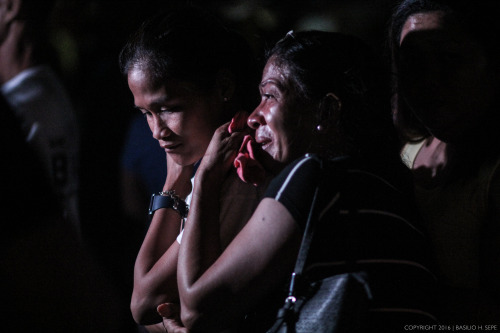It is widely documented that drug wars launched all over the world have had adverse effects on women. The Philippines—the country now at the centre of the world’s bloodiest drug war—is not an exception.
But there is also a different layer to this story. As the drug war in the Philippines becomes politicised, it is no longer just a war against women. It has also become a war among women.
A UN Women Policy brief shows that women are involved in high-risk tasks in the drug trade but are paid much lower than men. In Mexico, media reports indicate a staggering increase of murdered women. Rival gangs kill each other’s wives. At the same time, wives become targets of aggression for husbands frustrated over extreme poverty. Police conduct mass arrests of women to blow up their numbers.
In other Latin American countries, women acting as mules swallow drug-filled plastic pills and insert drugs into their genitalia to elude law enforcers.
In countries with tough anti-drug policies, women become expendable. They are paying the price of these wars
In Western Europe and Canada, women of colour receive the toughest sentences for the smallest drug offenses. Incarceration has also deeply aggravated the stigma against them. In countries with tough anti-drug policies, women become expendable. They are paying the price of these wars.
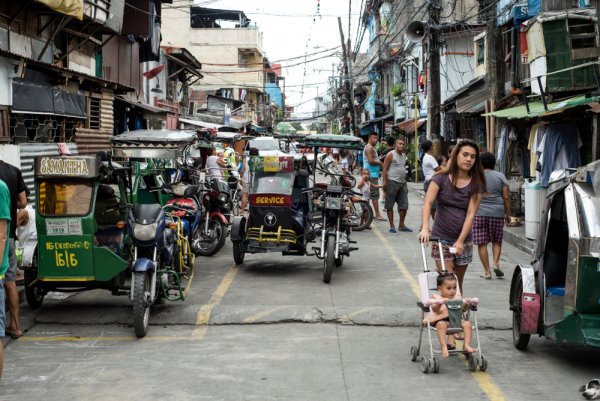
Manila, Philippines
In 2016, Philippine President Rodrigo Duterte launched his anti-illegal drug campaign, Oplan (Operation Plan) Double Barrel.
As part of my research on the impact of the Philippine drug war on women, I spoke to women whose kin were slain in anti-drug operations and by masked gunmen along the streets. I found that these women are consistently victimised upon the deaths of their breadwinners. Indeed, women bear the brunt of punitive programs against narcotics.
War among women: Broken communities
In our field site, the drug war has disrupted the cohesiveness in the barangay (village). In areas at the forefront of the violence, a brewing climate of distrust ensues among women.
Take Susan, a mother of five in her 40s. Her son was repeatedly stabbed by unidentified men a few kilometres from their house. She would hear snide comments about her late son from gossiping neighbours. They would talk about her son being the neighbourhood thief—which Susan strongly denies.
Days before her son was killed, unknown men forcefully entered their house looking for him. Their house had a red mark to indicate their household is on the drug watch list. Her other son is in hiding.
The policy that tagged Susan’s house was implemented by Josephine, the village chief. These controversial house-to-house visits are her proudest achievement. “It’s more peaceful now,” she said when we asked her to compare the situation of her village before the Duterte presidency and its current condition.
Upon the deaths of these women’s kin, their friends have grown fewer. So few that no one attended their husbands’ wakes
Upon the deaths of these women’s kin, their friends have grown fewer. So few that no one attended their husbands’ wakes.
They grieved alone because their friends and family were too afraid to mourn with them. One of my respondents, Kristina, found herself alone with her four small children during her husband’s wake. She didn’t have enough money to pay for her husband’s burial. The foul stench of the corpse called the attention of a parish priest who helped her raise enough funds.
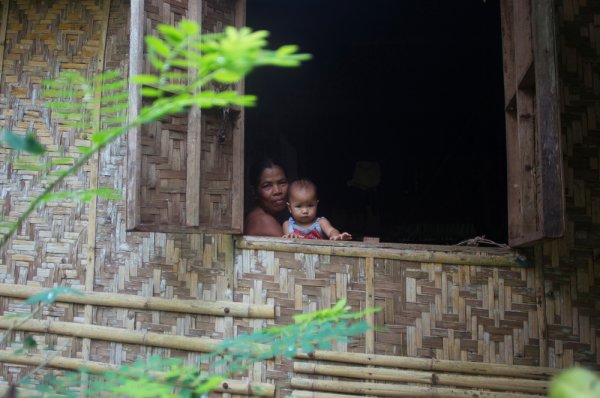
This is important because in the village setting, bonds among housewives are necessary for everyday life. Within a village, everybody knows everybody. Refusal to attend a neighbour’s wake says a lot—especially since it’s highly unlikely to not have known about it. In the village locale, neighbours in a village are aware of each other’s daily activities.
Suffering is eased with compassion and solidarity whether it is helping a fellow mother take care of her sick child or dealing with loads of dirty laundry all together.
The drug war changed the economy of compassion. Stigma further aggravates the situation of these widows.
War among women: Victims versus coddlers
Last year, I met Josephine—a fierce, middle-aged woman, with a gold tooth. She is the village chief of what she describes as a chronically drug-affected and violent community that is now peaceful and quiet thanks to Oplan Double Barrel. A strong proponent of the president’s anti-narcotics campaign, she accompanies police and other barangay officials during raids of drug dens, which sometimes turn into shootouts.
In her office, she showed me and my colleague the controversial drug watch list—a record of people in the barangay allegedly involved in illegal drugs. The list has over 600 names.
Some names on the list are highlighted. They were either shot dead by motorcycle-riding gunmen or killed in anti-drug police operations. There is clearly a gendered aspect to these lists, consisting predominantly of men. Regardless of their accuracy, it is generally understood that mostly men are involved in drugs.
Women’s interests are put forward as a justification for the punitive drug policy
Women’s interests are put forward as a justification for the punitive drug policy. Josephine said mothers would come up to her begging for help because their sons have gone into drugs. As village chief, she’s proud that she was able to send those kids to counselling and Zumba sessions.
Mothers of addicts are also demonised as failed parents. I spoke to Celia, a petite woman in her 40s. She leads a group of volunteers who scout the barangay for the wrong-doers. Her work involves collecting information about the residents in the area where she is assigned.
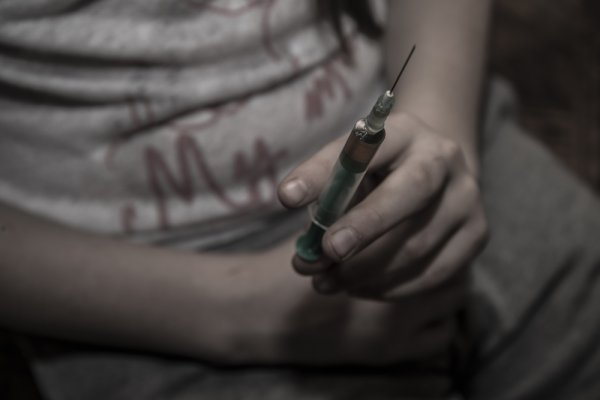
Mothers of addicts are also demonised as failed parents
The data she collects consists of coming up with names to put on the barangay drug watch list. She said, “Why do these mothers allow their children to be out until the wee hours of the night? Sometimes, the parents are to blame too”. In the same breath, Celia also expressed that she prefers that Duterte extends his term.
These stories tell us that the Philippine drug war took an uglier turn when it developed into a war among women
These stories tell us that the Philippine drug war took an uglier turn when it developed into a war among women. Yes, women are always more vulnerable in times of crisis. But they are more than damsels in distress. Women are also bearers of varying truths.
They are not passive players in the drug situation. They take up various roles and even engage in conflict with one another. As active agents, women can be facilitators of violence just as they can be radical fighters of a brutal regime.
Politicising the war on drugs obscures their vulnerability. The only one who benefits from this situation is the misogynistic president responsible for the bloodbath.
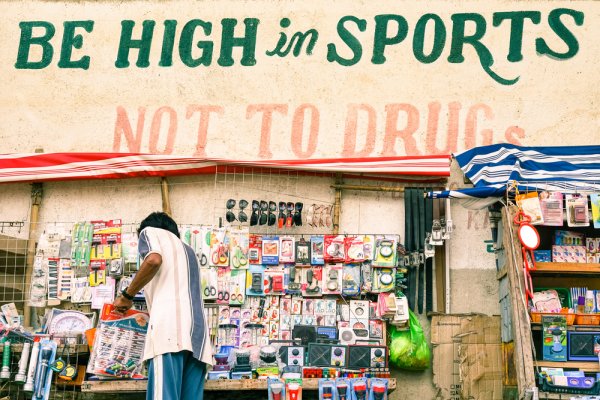
Coron, Philippines. February 2016. Image: Shutterstock
***
Real names of the respondents are withheld for privacy and anonymity.
The study is a recipient of the Australian National University’s Philippines Project Grant.
Cover image credit: Basilio Sepe
